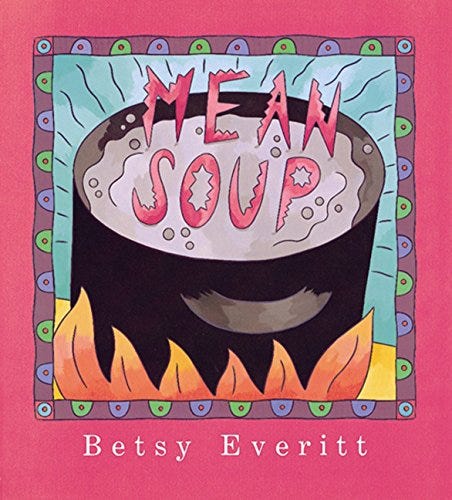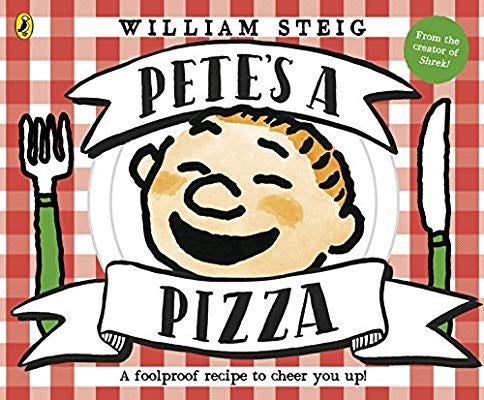If you haven't already heard it, stop reading now and go subscribe to the podcast Finding Fred, you wont regret it. I've listened to the entire 10-episode run twice and some episodes more than that. I started on this project months before the first episode aired, but those hours of interviews and commentary have shaped my approach to this project in ways I can't begin to identify. If there are more quotes from Fred Rogers than anyone else over the course of this newsletter's lifetime, it's partly because I grew up in Mr. Rogers' Neighborhood but mostly because of the podcast.
Mr. Rogers asked kids the question "what do you do with the mad that you feel?" and I'd pose the same question to the adults. Grief is often seen as synonymous with Sadness, but those of us who've had the distinct pleasure of spending time with it know there are more levels than simple sadness. Anger, regret, disappointment, jealousy, bewilderment, vulnerability and so many more layers. If we can mention them we can manage them, as Mr. Rogers taught us. There is an inherent unfairness in losing something we loved. Mr. Rogers reminded us of our power to do something with those feelings, but how many adults have an answer to the question: What do you do with the mad that you feel?
In our family, we shout at the sea. We're a loud group; we sing at the tops of our lungs, we interrupt each other when we're excited and we holler to get each others attention. When Lucy and Arlo were having a nap-deprived meltdown one evening, I drove a mile past our house to the ocean, pulled over, hit the button that automatically opens the slider on the van (I'm that mom) and said "LET 'ER HAVE IT" referring to the ocean. The kids took a scream-break and dissolved into giggles...and then we shouted. "I'M NOT TIRED" Lucy shouted. "I WANT JUICEBOX" Arlo shouted. "I MISS MY MOM" I shouted.
I'm not afraid to let my kids know that I have big feelings and I want them to know I'm not afraid of their big feelings either. There are age appropriate ways to bring kids into your interior life without overwhelming or burdening them. It's like going on a bear hunt -- you can't go over, under or around those big feelings. You've gotta go right through the middle of them.
LISTEN:
Nasty Dan by Johnny Cash
This song would sound cute sung by anyone else, but Johnny Cash growls these simple lyrics with just enough gruff and grit to make it a little edgy. My kids love to stomp and snarl throughout the whole song up until the ending -- "he just lives in his nasty ol' house with his nasty ol' wife and his nasty ol' kid in nasty happiness."
DO:
Google: “Emotions Wheel” and find your favorite. Print it. Hang it on your fridge. Give copies to your kids. Post it at your desk. Order a print for your wall. Set it as the wallpaper of your phone. Make edits, add your favorites, cross out words that don’t resonate. Own it. Make it a daily life tool.
Having the ability to name emotions — beyond mad, sad and glad — is a true superpower.

READ:
Death is Stupid by Anastasia Higginbotham (2016)
Mean Soup by Betsy Everitt (1992)
Pete’s a Pizza by William Stieg (1988)
In each of these books, kids feel big feelings and are accepted by the adults in their lives. Death is Stupid is one of the best, boldest options for kids who struggle with the unfairness of loss (so, any kid of any age who has experienced loss). Mean Soup and Pete’s a Pizza both feature kids who are feeling glum due to understandable circumstances — a particularly terrible day for Horace and a rained out baseball game for Pete — and their parents don’t try to talk them out of feeling bad, but instead give them real ways to let that mad out. Big feelings are accepted and worked through.



WRITE:
I would love to hear from you. You can reply directly to this email message or leave a comment. I'm so interested in hearing your experiences, your insights, your questions and your feedback.
So, what do YOU do with the mad that you feel? How do you process your feelings of anger over the loss of the people, pets and places you've loved? Maybe your kids have seen you sad, but do they know you feel bitter injustice? Do they know you feel disappointed? Or just plain mad? How might knowing that change their understanding of you and the way death and loss equalizes us?
As always, if you know someone who may be interested in this topic, I hope you'll forward this message their way or encourage them to subscribe. This is a free newsletter and the archive is available at: https://dailylifeanddeath.substack.com/
This is a once weekly email newsletter written and distributed by Megan Carmichael of Daily Life & Death and all opinions are obviously my own.



